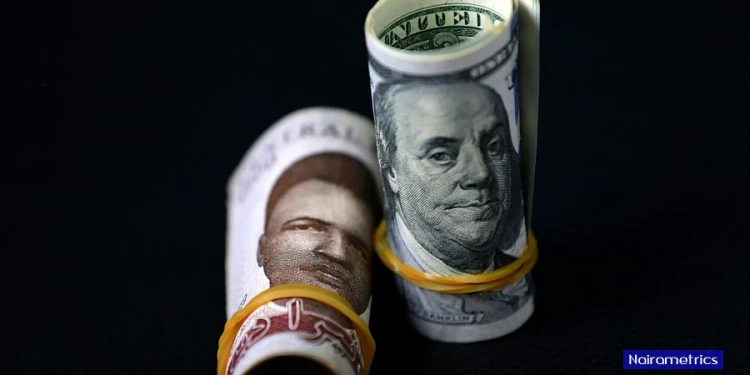Naira depreciates by 13.9% in one week at I&E Window
The depreciation of the naira reflects the underlying demand and supply dynamics in the foreign exchange market, as well as the uncertainty and speculation that surrounded the policy change.
The naira plunged to a record low against the dollar last week as Nigeria’s new foreign exchange policy took effect.
The policy, announced by the Central Bank of Nigeria on June 15th, 2023, allows the market to determine the exchange rate of the naira, ending the multiple and distorted rates that had been in place for years.
The move was welcomed by local and foreign investors, who had long called for a unified and flexible exchange rate regime in Africa’s largest economy.
The policy is also expected to boost the supply of foreign exchange and ease the pressure on the naira, which had been suffering from low oil prices and dwindling foreign reserves.
However, the naira depreciated by 13.91% in the first full week of trading under the new system, closing at N770.17/$1 on Friday, June 23rd, 2023, compared to N663.04/$1 on Friday, June 16th, 2023.
The naira also weakened against other major currencies, such as the euro and the pound sterling.
Price discovery is still ongoing
The depreciation of the naira reflects the underlying demand and supply dynamics in the foreign exchange market, as well as the uncertainty and speculation that surrounded the policy change.
- Some analysts believe that the naira will stabilize in the coming weeks as more liquidity enters the market and confidence improves.
- The Central Bank of Nigeria has assured the public that it will intervene in the market when necessary to ensure stability and prevent excessive volatility.
- It has also pledged to maintain transparency and accountability in its operations and provide timely and accurate data on the foreign exchange market.
A recent Nairametrics article indicates the apex bank injected $29.5 million in the investor and exporter window at an average rate of N765/$1 suggesting that was their preferred price point.
More update on forex policy
In the past week, the Nigerian forex market experienced notable developments and significant exchange rate fluctuations.
- Central Bank of Nigeria introduces eNaira as a payment option for diaspora remittance, aiming to liberalize payout methods.
- The CBN also issued operational changes to the forex market allowing unrestricted access to funds in domiciliary accounts.
- During the week, Nairametrics also confirmed an Intra-day high exchange rate of N815/$1 reached at the official Investor & Exporter Window, the highest recorded since the window’s launch in 2018.
Back story
The new foreign exchange policy is part of a broader economic reform agenda of the Bola Ahmed Tinubu administration, which came into power on May 29, 2023.
- The administration has vowed to revive Nigeria’s economy, which has been hit hard by the COVID-19 pandemic, insecurity, and corruption.
- The administration has also promised to diversify Nigeria’s economy away from its dependence on oil, which accounts for about 90% of its foreign exchange earnings and 60% of its government revenue.
- It has identified sectors such as agriculture, mining, manufacturing, and services as potential drivers of growth and job creation.
The success of Nigeria’s new foreign exchange policy will depend largely on how well it is implemented and sustained, as well as how it interacts with other macroeconomic policies and factors. The policy is a bold step towards a more market-driven and competitive economy, but it is not a panacea for Nigeria’s economic woes.
Source: Norvanreports


